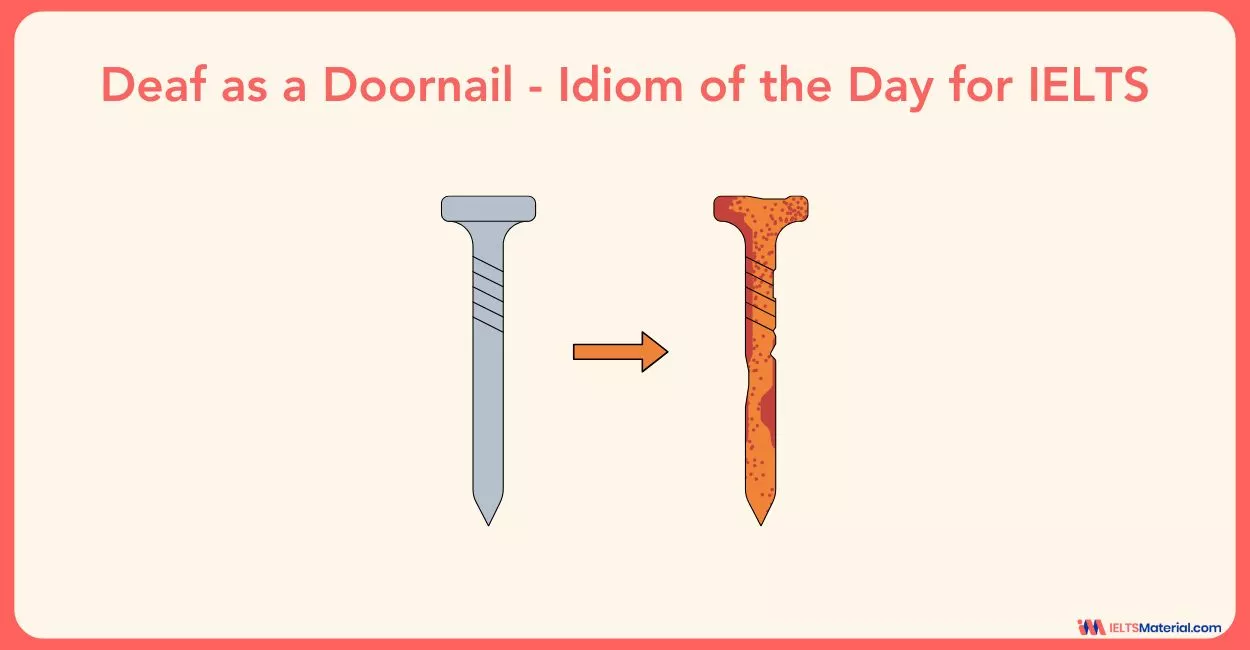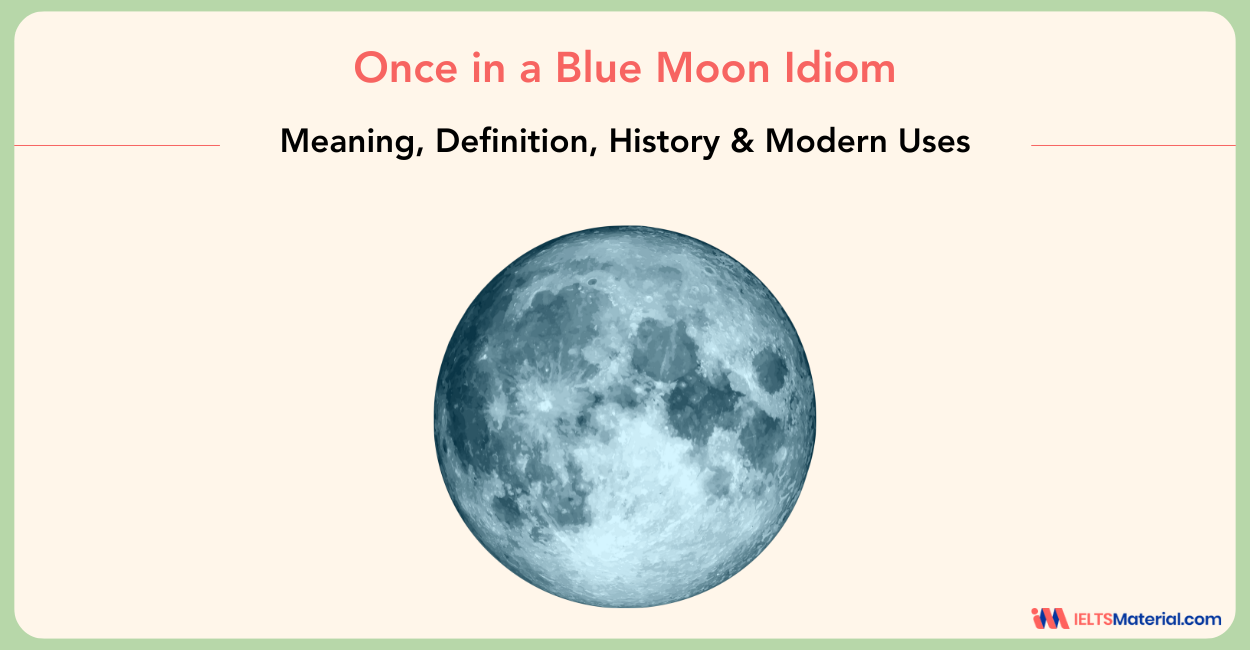Kick the Bucket Idiom: Meaning, Definition & Synonyms
Table of Contents

Limited-Time Offer : Access a FREE 10-Day IELTS Study Plan!
“Kick the bucket” is a common idiom, but do you know what it actually means? The ‘Kick the bucket’ idiom is often used to describe someone being dead. For example, you might say “All of her uncle’s money goes to his wife when he kicks the bucket” to mean that once her uncle is dead, all of his money goes to the wife.
Meaning of Kick the Bucket
To kick the bucket is an English idiom considered a euphemistic, informal, or slang term meaning “to die.”
- To stop living
- To pass away
- To die
Phrase: If you say that someone has kicked the bucket, you mean that they have died.
Usage: Informal
Origin and History of Kick the Bucket
This idiom, “Kick the bucket” first appeared in 1785 in the Dictionary of the Vulgar Tongue print. Though the origin is not clear, there are various theories that define its source.
One theory is the reference to the archaic meaning of bucket, which was used in the 16th century to mean beam in England. A beam, or a bucket, was being used to hang animals for their slaughter. Since animals were hanged by their feet, they would repeatedly kick the bucket until they died.
Synonyms for the Kick the Bucket Idiom
The following is a list of words that could act as a synonym for the idiom, Kick the bucket.
- Pass away
- Succumb
- Exit
- Deceased
- Perish
- Conk
- Expire
- Die
- Pass
Master idioms and Ace your IELTS exam with Our Vocabulary and Grammar Ebooks!
Examples:
Go through the following given examples to understand the usage of the idiom!
- The old man who used to live down the street has kicked the bucket.
- When we returned from the vacation I found my dog had kicked the bucket.
- I registered for organ donation when I kicked the bucket.
Exercise:
Fill in the blanks appropriately with the proper usage of the idiom – Kick the bucket.
- After a happy trip, our grandpa finally ___________.
- Despite being diagnosed with a terminal illness, he managed to fulfil his last wish before ___________.
- The old car finally ___________ after faithfully serving the family for over two decades.
- She laughed heartily, saying she wouldn’t ___________ until she danced at her granddaughter’s wedding.
- The eccentric millionaire donated his entire fortune to charity before ___________.
Answers:
- Kicked the bucket
- Kicking the bucket
- Kicked the bucket
- Kick the bucket
- Kicked the bucket
Tips for Using Idioms in IELTS Speaking
Idioms are a great way to show your fluency and understanding of the English language during your IELTS Speaking. However, it is important to use them correctly. If you use an idiom incorrectly, it can actually make you sound less fluent.
So, here are a few tips for using idioms in your IELTS Speaking:
- Make sure you know the idiom’s meaning: This may seem obvious, but it is important to make sure you understand the idiom’s meaning before you use it. If you are not sure what an idiom means, you can look it up in a dictionary or thesaurus.
- Use idioms in a natural way: Don’t try to force idioms into your speech. If you use them sparingly, it will sound unnatural. Instead, try to use them when they are appropriate and make sense in the context of your conversation.
- Be aware of the cultural context of the idiom: Some idioms have different meanings in different cultures.
To conclude with a fun fact, If you’re looking for a delicate way to talk about someone dying, “kick the bucket” isn’t the right way to do it — it’s a blunt and casual, almost joking way to say “die.” Understanding the meaning and correct usage of idioms will help to communicate more effectively.
Enroll in Our Master Program and improve your proficiency in using idioms and phrases!
Also Check:
- 35 Useful Idioms for IELTS Speaking
- Useful Idioms & Expressions About Happiness And Anger for IELTS Speaking
- The most Common Idioms to Boost Your IELTS Score – Topic : Disagreement
- Ten Food Idioms that are right under your nose to help Score Band 8.0+ | IELTSMaterial.com
- Bear Fruit – Idiom Of The Day For IELTS Speaking.
Explore IELTS Resources

Start Preparing for IELTS: Get Your 10-Day Study Plan Today!
Recent Articles

Kasturika Samanta

Prity Mallick

Nehasri Ravishenbagam





Post your Comments